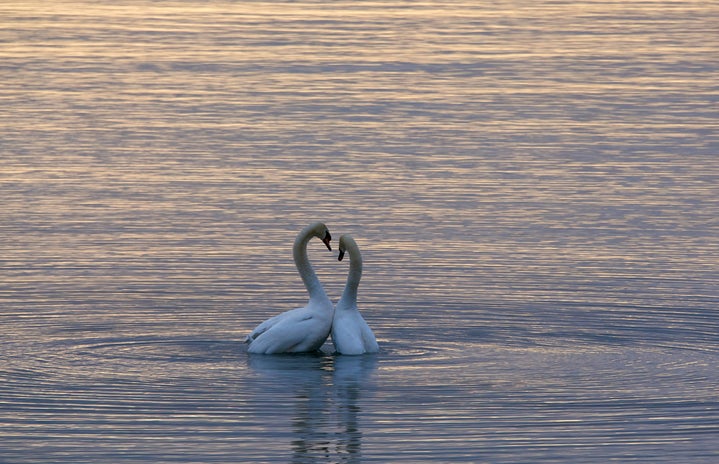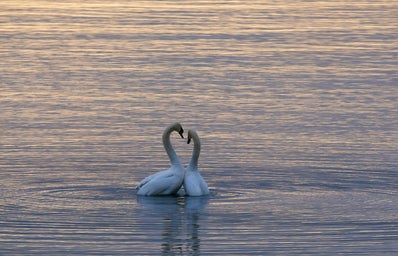Edited by Aneesha Chandra
The free market has a knack for doing two unspeakable atrocities to art — one is sensationalisation and the other is trivialisation. Take for instance the Bond movies, more specifically, how they approach the concept of Love. Their lack of realism is plain to see and yet the mind clings to them relentlessly. One is bound to either ruin oneself in pursuit of fantasies such as these or become disillusioned with them entirely. Both outcomes are detrimental to the goal of popular culture. On the other extreme, we have the fanfare surrounding Valentine’s day, an instance of gross trivialisation, considering its origins, as we shall discuss later.
The state of February the fourteenth, as we know it today, came to be when St. Valentine was martyred on this fateful day in the Roman empire, during the Christian persecutions. One may wonder, what the martyrdom of a zealous servant of Christ has to do with Love, especially between two people and not between people and God. Well, the answer is a poem and not just any poem. It was a poem by the Great Geoffrey Chaucer, who, after witnessing the mating of birds in his locale of England, where it occurs in February, was taken with the wholesomeness of courtly love. The pioneering spirit of the man led many of his successors to follow suit, and so a necessity for real birds was turned into a tradition for lovebirds.
Some maintain that Lovers now have a day to celebrate their passions and that there is nothing wrong with a tradition of this sort. However, they fail to appreciate the seriousness of courtship in their haste to turn everything into a ‘day’, whether it is birth, death, marriage, mother, father, and so on. Marking our calendars with such days was originally a very solemn act of paying tribute and being grateful. Whether it be for a good harvest or hoping for a pleasant spring or winter, all communal celebrations had an underlying purpose. Humans, as you know, have no ‘mating’ season. Due to this lack of order, their attitude towards courtship is downright casual, even playful. One can’t say the same about the animals and plants we share the planet with. For them, as Darwin would suggest, it is a matter of survival. Survival rests on the possibility of reproduction, made possible by courtship.
If one surveys any wildlife documentary, one is bound to encounter the important ritual of courtship, common to almost all species of organisms. In those capable of doing so, this takes the shape of a contest of raw strength and dominance. Lions, tigers, elephants, and even horned herbivores like ibex and rams mate in this way. In many others, the mating rights belong to one who can attract and charm the partner by virtue of his appearance and theatrics. While the method may be different, the goal and the consequences of each outcome remain the same. Losing the right to mate, in the short lifespan available to a male of the species means not passing on his genes. “Not passing on your genes, well what’s the big deal” you may retort. Well, as it happens, the passing of genes is perhaps the only worthwhile pursuit for a male of the species, seeing as he doesn’t have the liberty, like us, to while away his time in any other fashion.
So, unlike James Bond where Love is but a brief interlude to the larger travails of his character, for the male of the species, Love is verily, a matter of life and death. Courtship is a battle he must fight till the end of his short life. For him, rejection is second only to dying. The human tendency to gloom over breakups, therefore, is a vestige of our not so distant past. Love is not meant to be a matter of life and death for us either, at least for now. In a post-apocalyptic or space-colonisation scenario, whichever happens first, Love will assume the same solemnity it has for the male of the species in the wild. For now, treating courtship with a sense of deference should suffice.
There is a growing undercurrent in our popular culture, of disgruntled young males of the human species, who call themselves incels, short for involuntary celibates. These young men are no different than the male of the species who fail to pass on their genes in nature. They, in their angst, create all kinds of theories and blame a variety of factors for their situation. Common amidst all their appeals is the ‘villainous’ hypergamous nature of our society. They can’t stomach the simple existence of a hierarchy in the arena of courtship. Central to their woes is the false assumption that humans are somehow ‘equal’ and if not, can become so. They pin their hopes upon the poetic notions of Love where who they covet is ready for them with open arms. Once again, the innocent human mind falls prey to fancies of its making.
Fantasies are necessary, for they draw our minds away from the daily drudgery of life on earth. However, to rely on them for succour when one should be out there, making sincere efforts, is unacceptable. An article, one day, or even one lifetime is not enough to capture something so elusive as Love, yet we must try, for trying is all we can do.


